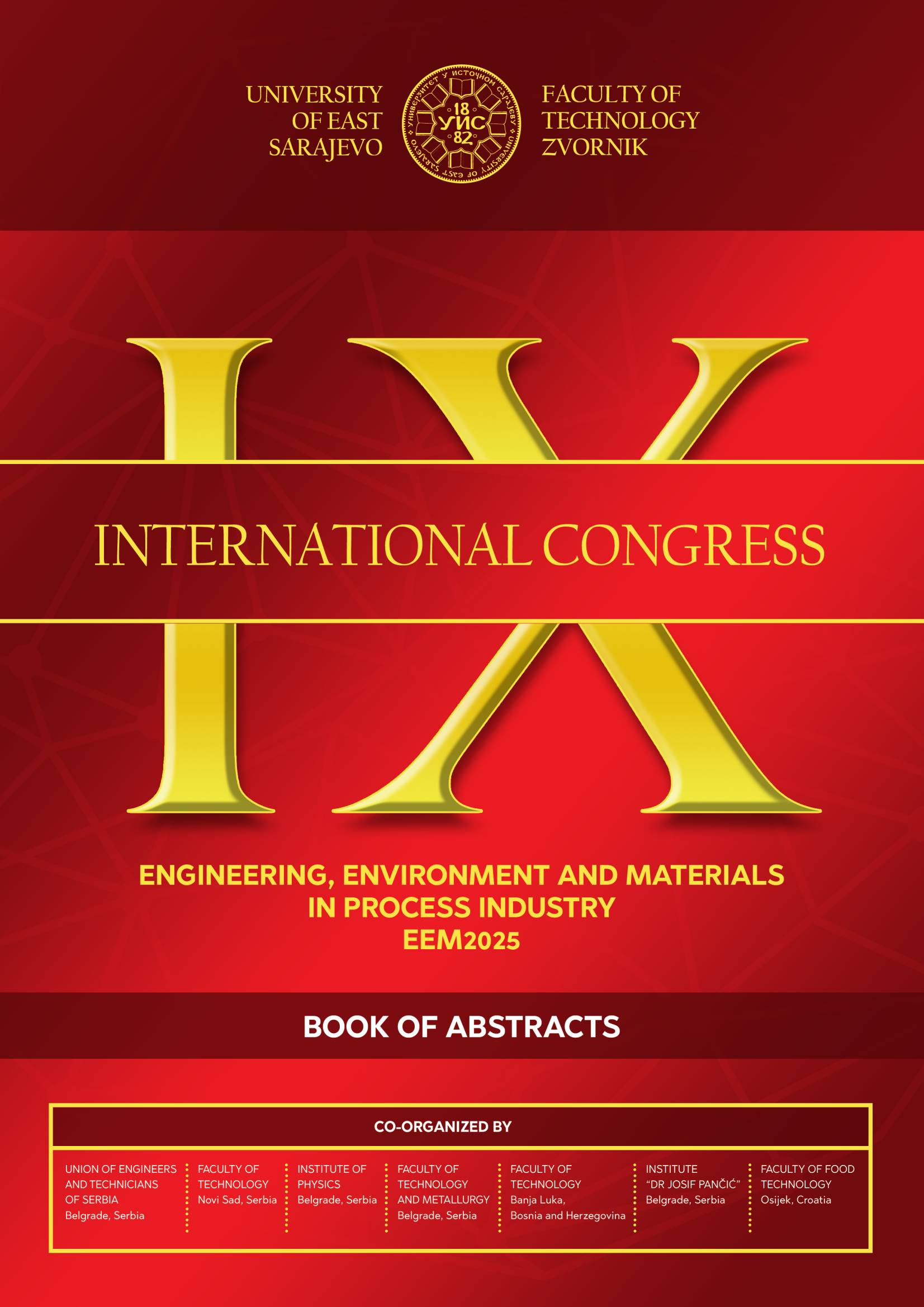
This is an open access article distributed under the Creative Commons Attribution License which permits unrestricted use, distribution, and reproduction in any medium, provided the original work is properly cited.
University of East Sarajevo, Faculty of Technology Zvornik, Karakaj 34a , Zvornik, Republic of Srpska , Bosnia and Herzegovina
Krebs+Kiefer Eastern Europe, Trg Republike Srpske 1 , Banja Luka , Bosnia and Herzegovina
nstitute of General and Physical Chemistry, Studentski trg 12/V , Belgrade , Serbia
University of East Sarajevo, Faculty of Technology Zvornik, Karakaj 34a , Zvornik, Republic of Srpska , Bosnia and Herzegovina
Edible oils undergo undesirable changes over time or during thermal treatment due to enzymatic, microbial, and chemical processes, leading to spoilage. In this study, the oxidative state of sunflower oil was assessed by determining the peroxide value (PV), anisidine value (AV), and Totox value (TV) using standard methods. The oil was heated at temperatures ranging from 110 to 190°C for 10 and 30 minutes, also in the presence of molecular sieves (Zeolite 4A, clinoptilolite, and bentonite). When using the synthetic molecular sieve Zeolite 4A, a reduction in the Totox value by 35.72% was observed. When natural molecular sieves were used, a reduction of 33.19% was recorded for clinoptilolite, while for bentonite, the reduction was 31.08%. Both natural and synthetic molecular sieves demonstrated a strong ability to regenerate thermally treated oils.
The statements, opinions and data contained in the journal are solely those of the individual authors and contributors and not of the publisher and the editor(s). We stay neutral with regard to jurisdictional claims in published maps and institutional affiliations.